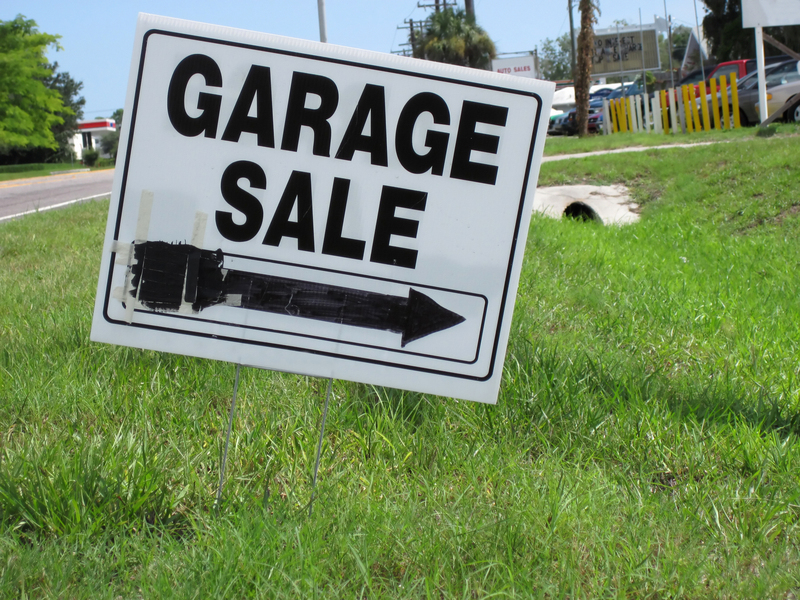Monitor Waste Management
Posted on 18/08/2024
Waste management is a crucial aspect of maintaining a clean and healthy environment. With the increasing global population and rapid industrialization, managing waste effectively has become more important than ever. Monitoring waste management practices ensures that waste is disposed of in a safe and environmentally friendly manner, minimizing the impact on our planet. In this article, we will explore the importance of monitoring waste management, various methods employed, and provide tips for effective waste management.
The Importance of Monitoring Waste Management
Proper monitoring of waste management is essential for several reasons. Firstly, it helps in reducing the adverse effects of waste on the environment. Secondly, it ensures the efficient use of resources by encouraging recycling and reuse. Lastly, it aids in complying with local, national, and international regulations regarding waste disposal.

Methods of Monitoring Waste Management
1. Waste Audits
Waste audits involve the systematic examination of waste generated from different sources. This method helps in identifying the types and quantities of waste produced, allowing organizations to develop strategies for waste reduction, recycling, and disposal.
2. Tracking and Reporting
Implementing waste tracking and reporting systems enables organizations to keep track of the waste they generate and how it is managed. Detailed reports can be generated to monitor progress in waste reduction efforts and ensure compliance with regulations.
3. Use of Technology
The integration of technology in waste management has significantly improved monitoring practices. IoT devices, sensors, and software applications can provide real-time data on waste levels, enabling timely interventions for waste collection and processing. Technology also helps in analyzing data to identify trends and make informed decisions.
Tips for Effective Waste Management
Effective waste management requires a combination of strategies and practices. Here are some tips to help you manage waste efficiently:
1. Reduce, Reuse, Recycle
Embrace the three R's of waste management. Reducing the amount of waste generated, reusing materials where possible, and recycling items that cannot be reused significantly minimize waste sent to landfills.
2. Segregation at Source
Implementing waste segregation at the point of generation ensures that different types of waste are appropriately handled. Separate bins for recyclables, organic waste, and hazardous waste prevent contamination and facilitate efficient recycling and disposal.
3. Employee Training and Awareness
Educating employees and raising awareness about waste management practices is crucial. Conduct regular training sessions and workshops to ensure that everyone understands the importance of waste management and follows best practices.
Pros and Cons of Monitoring Waste Management
Pros
- Reduces environmental impact by minimizing landfill waste and promoting recycling.
- Ensures compliance with regulations, avoiding potential fines and legal issues.
- Encourages efficient use of resources, leading to cost savings.
- Improves public health by preventing improper waste disposal.
- Enhances corporate reputation through responsible waste management practices.
Cons
- Requires initial investment in technology and training.
- Ongoing monitoring and reporting can be time-consuming and resource-intensive.
- Resistance to change from employees may pose challenges in implementing new practices.
- Accurate data collection and analysis may be complex.

Takeaways
Monitoring waste management is a vital component of sustainable development. By adopting effective waste management practices, organizations can minimize their environmental footprint, comply with regulations, and optimize resource use. The integration of technology, waste audits, and tracking systems significantly improve monitoring efforts, leading to better waste management outcomes.
Conclusion
Proper waste management is essential for protecting our environment and ensuring a sustainable future. By monitoring waste management practices, organizations can identify areas for improvement and implement strategies to reduce, reuse, and recycle waste. Although there are challenges associated with monitoring waste management, the benefits far outweigh the drawbacks. With the right approach and commitment, we can all contribute to a cleaner, healthier planet.
Latest Posts
Hard Waste: Disposal Guidelines
Large Furniture Disposal Techniques
PPE Environmental Impact Mitigation



